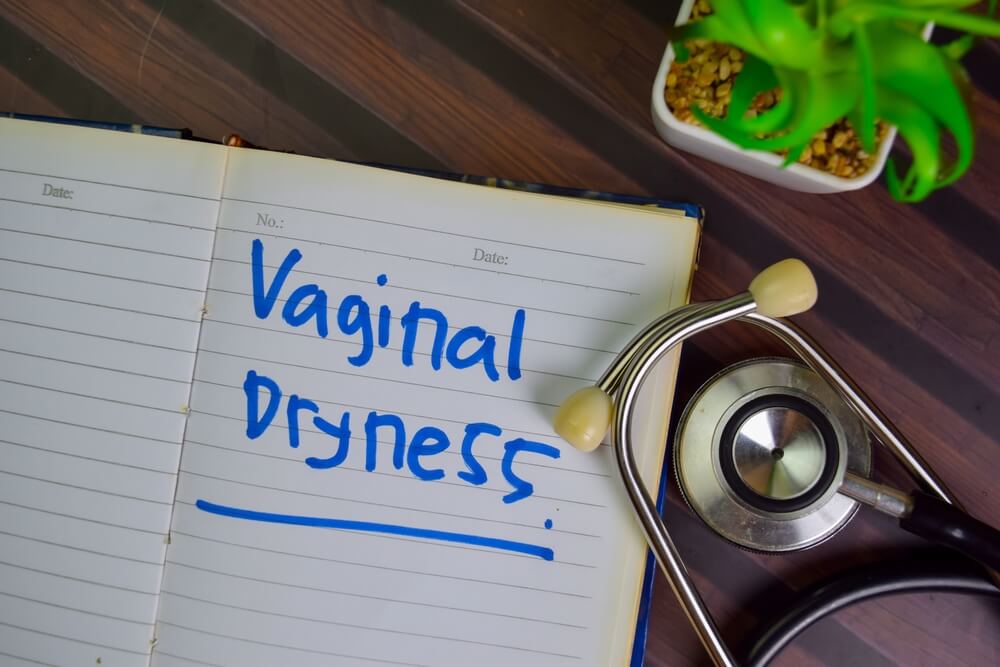When experts need to define vaginal dryness, they will often say that it’s more of a painful symptom than an actual disease. Still, it can profoundly affect a person’s quality of life because it can cause discomfort and even pain during exercising, urination, sitting, and intercourse (also known as dyspareunia).
Fortunately, the problems of vaginal itching and dryness can be effectively tackled with the right kind of professional help. So, if you are looking for stellar services in obstetrics and gynecology in South Miami, Florida, schedule an appointment with our practice.
That said, we’ll talk about this uncomfortable symptom and will also discuss effective vaginal dryness treatment options.
Leading Causes of Vaginal Dryness

Typically, the vaginal lining is properly lubricated, elastic, and thick. Vaginal dryness usually occurs when lubrication stops, primarily due to hormonal issues.
Vaginal dryness may be caused by menopause, certain medications, hormonal imbalances, a side effect of chemotherapy, or a byproduct of a hysterectomy.
More precisely, vaginal dryness may result from the following:
- Childbirth and breastfeeding
- Birth control pills or any other form of hormone-based birth control
- Specific cancer treatments like hormone therapy or chemotherapy
- Anti-estrogen medications like compounds that treat endometriosis and uterine fibroids
- Some antidepressants
- Certain antihistamines
- Oophorectomy or ovary removal
- Lack of sexual arousal
- Sjorgen’s syndrome, which is an autoimmune disorder causing dryness in the body
- Perfumed or scented soaps, washes, and sprays that you use in or around your vagina
Vaginal dryness in postmenopausal women is often referred to as vaginal atrophy, where the lack of estrogen causes the vaginal lining to thin out and get dry.
Without proper lubrication, women may experience vaginal itching, burning sensations, and overall vaginal discomfort, especially during intercourse.
Vaginal Dryness and Menopause
While dyspareunia and itching can appear at any age, it’s the most prevalent in women who underwent menopause. Postmenopausal women will have lower estrogen levels, which is the hormone that helps with keeping the vagina moisturized and healthy. As estrogen levels decline, the wall of the vagina may become dry and thin, leading to the before-mentioned vaginal atrophy.
Around 17% of women between the ages of 18 and 50 report issues with vaginal itching and dryness even before menopausal changes occur, and approximately 50% of women may experience vaginal dryness after menopause.
Why Do I Experience Dyspareunia?
For the most part, the uncomfortable symptoms of dryness are most evident during sexual intercourse. The lack of vaginal lubrication may lead the friction (or rubbing) to cause discomfort and even pain. Because of this, it’s always recommended to reach full arousal before engaging in sex.
On that end, foreplay may help women relax. Also, using sexual lubricants (water-based) may help moisturize and lubricate the vagina.
Painful sex should be addressed as soon as possible as it may lead to a lack of general interest in sex, which then may lead to decreased intimacy with your partner, causing relationship troubles and even mental problems.
What Does Vaginal Dryness Feel Like?
As mentioned before, the symptom causes itching, burning sensations, and general discomfort in your vagina, especially during intercourse.
Apart from this, a dry vagina may also:
- Bleed after sex because the vaginal tissues have slightly torn
- Feel sour in the vulvar area
- Become more prone to recurrent yeast and urinary tract infections
- Trigger more frequent urination
- Reduce the patient’s libido or sex drive
Apart from that, the lack of lubrication in the vagina can lead to less moisture in the external genitals or vulvar area, which may result in irritation and dryness during everyday activities like sitting, walking, or putting on underwear.
Vaginal Dryness Treatment
Before treating vaginal dryness, health experts need to establish a proper diagnosis, usually based on the findings of a physical exam in combination with taking a closer look at the patient’s medical history. Remember, vaginal dryness is actually a symptom, so doctors need to find the root cause of the problem.
As such, health experts will mainly perform the following tests:
- Pelvic exams to take a closer look at the vagina
- Blood tests to see if hormone levels or other health conditions are the primary problem
In some cases, experts may also take a sample of vaginal discharge to check for infections and whether they are responsible for the dryness.
Regarding actual vaginal dryness treatment options, those affected will be glad to hear that there are several effective treatment options. In some cases, even some natural remedies might prove to be effective in treating the problem.
Medications
In short, these prescription-only compounds aim to act like or replace the estrogen missing from the body.
- Low-dose estrogen rings, tablets, or creams replace the missing estrogen in the body when applied directly into the vaginal area. Usually, they should be used daily at first until patients find relief. Then, they can use these options weekly. Rings are placed in the vagina and usually need to be replaced at three-month intervals.
- Ospemifene is an oral SERM or selective estrogen modulator that acts like estrogen helping with vaginal atrophy and painful sex.
- DHEA, or Dehydroepiandrosterone, is another estrogen-like medication in the form of a vaginal suppository that can help provide relief in menopausal women who are experiencing painful sex.
Still, before you opt for these vaginal dryness treatment options, it’s highly advised to seek out the guidance of your healthcare providers because these compounds containing estrogen-like substances or estrogen may not be safe for patients who have had breast cancer or are at risk of developing the malignancy.
Lubricants and moisturizers
These are non-prescription treatment products that can be purchased in grocery or drug stores. They work by making the vaginal tissue wet, easing potential pain during sex.
Natural Vaginal Dryness Remedies

As mentioned above, some natural remedies may help restore the vagina’s natural lubrication process.
Some say that certain foods may promote female lubrication. However, there isn’t much scientific evidence to back these claims. Still, staying well-hydrated and drinking enough water will definitely help the body retain its moisture.
On the other hand, natural vaginal dryness remedy options may include olive, grape seed, sunflower, vegetable, and coconut oils, which might be used as external lubricants before intercourse.
Keep in mind that these may damage condoms, so it still may be better to use water-based lubricants.
Some healthcare providers also recommend regular sexual stimulation to help the vaginal tissue by encouraging it to become moist.
Also, patients should talk with their partners to engage in longer foreplay before intercourse to help women relax and reach full arousal. And even after insertion, couples should take it slow.
Don’t Be Afraid to Ask for Help
While vaginal dryness doesn’t signify anything overly serious, most women feel embarrassed to talk about it. Several effective ways to treat this issue enable you to return to your everyday routine and sex life.
If you are also bothered by this symptom, feel free to reach out to our practice and schedule an appointment so we can discuss the best treatment option for your situation and preferences.


